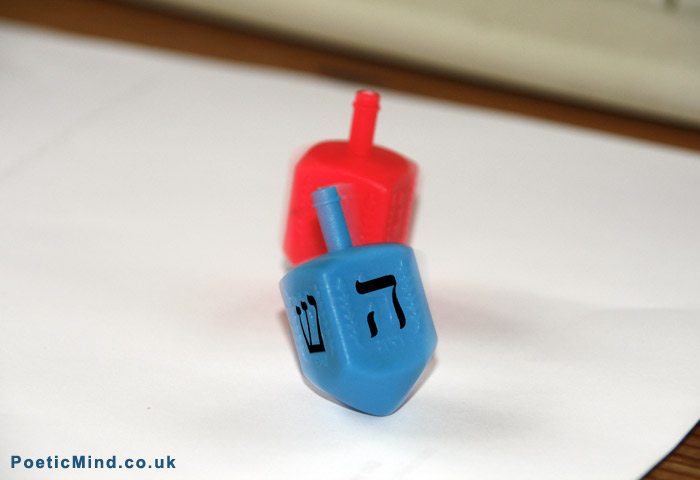
by Gil, Natalie, and Yael Dekel.
Free resources:
– Download games ideas with PDF templates (click the links and photos in this article, to download).
- Introduction to Hanukah story.
Also, see other Hanukkah resources, here.
Game 1 – Scare away the Light Muncher:
The children need to scare away the Light Muncher (click here for template), who eats-up the light of Hannukah. Tell the story of the Light Muncher, who likes to gobble up the light of Hanukkah. The Monster ate all the light of the Menora (candelabrum) in the temple in Jerusalem. The Macabeem family had to chase him away, and rededicate the temple. But now, the Light Muncher is after the Menora light in your Hanukkah party!…
The children need to stand up, and pretend that they are candles. They can make ‘waves’ with their hands in the air to represent the flames. The facilitator, holding the Light Muncher, should try to ‘eat’ up the flames. The children then need to ‘intensify’ the flames so to scare the Muncher away…
Game 2 – Pin the Candles on the Menora:
Just like ‘pin the tail on the donkey’ game. Download template. Here is the result from our party…:
Game 3 – Spot eight differences:
Hanukkah is celebrated over eight days, so there are eight differences to spot in this game.
Game 4 – Word Search games:
There are two versions for you to use: one game makes the shape of the Menora; the other game has a standard layout.
Game 5 – Hanukkah Medals:
See templates to prepare the medals in advance. On page 3 of the PDF template I included empty ‘field’ which is space where you can type your own text. The children just love to be ‘awarded’ these medals, so make sure you attach a nice golden ribbon, which you can buy cheaply from local stores or online.
Introduction to Hannukah:
Hanukkah is the Jewish Festival of Light. The Hebrew name ‘Hanukkah’ means dedication, referring to the re-dedication of the Second Temple in Jerusalem during the Maccabeam (Macabim) Revolt. The Temple’s Menorah (candelabrum) was re-installed during the revolt, and a miracle followed.
While the story commemorates a miracle from the past, it also upholds the present day, by celebrating the inner light that lies within people, and which can overcome external darkness. Hanukah teaches us to look at purity over impurity, and at spiritualism over simple materialism in our daily lives.
The festival begins on the 25th of Kislev, a Jewish month, and ends after eight days. Each day, people light up one candle, adding another one the next day, and ending with eight burning candles. This represents the miracle where one small bottle of oil that should last for one day, actually burned for eight days in the Temple.
The story describes the Maccabeem victory, driving the invading forces out of the holy land, for a short period. After their hard-earned victory, the Maccabeem entered the temple in Jerusalem to find out that the bottles of oil for the Menorah were used. They could only find a single small unconsumed bottle of oil which was enough to last for just one night. To everyone’s surprise, the oil was able to sustain the lit candles for eight nights – a miracle which is celebrated every year during Hanukah, in order to praise the Godly light and the power of freedom.
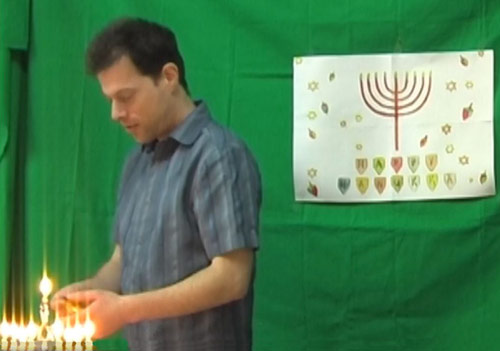
Lighting up the Menora, on Hanuukah holiday. Photo © Gil Dekel.
During Hanukkah, people eat food that is fried with oil, such as Sufganiya (doughnut) and Levivot (potato latkes), in order to pay tribute to the miracle which was oil-based. Eating dairy foods is another tradition, done in memory of Judith (Yehudit) who rescued her entire village. Legend says that Judith fed cheese to the Assyrian General Holofernes and gave him wine to drink in order to overpower him when he got drunk.
During the holiday, Jewish elders also give gelt (coin money, or chocolate coins) to children in order to teach them to share and give to charity. Others also do it in order to make the holiday more festive.
Another tradition is to play dreidel game (spinning top toy, ‘svivon’), which was used in times when the invading rulers have outlawed Torah study. During that time, children would hide their studying materials, and as a cover-up they would play spinning tops. The Svivon has 4 Hebrew letters printed on it, standing for: ‘A Great Miracle Happened There’ (in Israel).

Svivon, Spinning Top toy. Photo © Gil Dekel.
Overall, the atmosphere of Hanukkah is intensified with games, foods, songs, families coming together, and prayers. It is a wonderful and rich celebration which gives much glory and honour to life and God.
Other games ideas for Hanukkah:
Spinning Musical Statues: The children need to spin, as if they are spinning-toys, while music plays. When the music stops, they need to freeze.
Marshmallow Menora: Create candelabrum using marshmallows as candles, and jelly-beans as flames.
Beewax Candles: Buy pack of beeswax sheets with wick (amazon or ebay), and make candles with the children.
Pix ‘n mix Hanukkah story: Tell the story of Hanukkah, and ask each child to re-write it in their own words. Then, randomly, pick up one sentence from each child’s story, and mix it into a new story. The result will be random comical set of events story. Read it aloud. The more the story is random, the more the children would love it…
Drama word game: Children age 9-years-old love to act. Set two groups of children. Give each group a few words from the Hanukah story, such as: ‘Joy’, ‘Hanukiya’, ‘Chocolate coin’, or even general sentences such as ‘this is a great Hanukkah party’. They will need to practice for 10 minutes, and then to perform the words to the other group. The other group will need to guess the words, from the act alone.
Draw your own light: Hanukkah is about finding the inner light within, even if sometimes we may feel lonely, or misunderstood. When life feels dark outside, we can look inside for that inner light. Ask the children to draw their inner light, or something else that makes them feel happy. It could be a special memory, family member, imagined friend, a colour, a feeling, or anything that represents joy and light to them.
New words to Hanuka songs: Play a Hanukah song (maybe ‘Oh Hanukah’), and ask the children to re-write the words, in any way they want to, and then to perform and sing their new song…
Chocolate Treasure Hunt: Prepare a treasure hunt, with a map, in the room where your party takes place. The treasure is the chocolate coins; so instead of just giving chocolate coins, the children should find it. You can also talk about charity, and ask the children to ‘swap’ their chocolate coins, once found, so that they experience giving (and still each child gets a chocolate coin back…)
Glow Sticks: So simple, yet so effective. Give children glow sticks (15 sticks cost about 2£), turn off the light in the room, and watch the kids pretending to be inter-galactic invaders, or something similar… A wonderful way to end your Hanukkah party. You can also play the Hebrew Hanukkah song ‘We came to deter the darkness’ (באנו חושך לגרש).
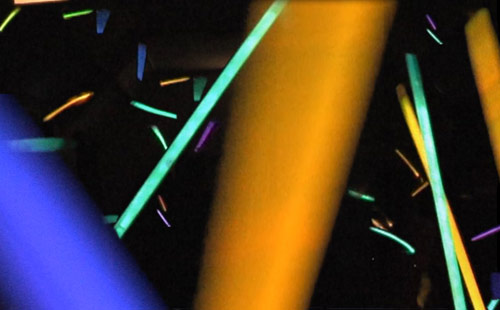
Children playing with glow sticks. A great way to end up a Hanukkah party. Photo © Gil Dekel.
See other Hanukkah resources, here.
Hannukah is also spelled: Hanuka, Hanukkah, Chanukah, Chanuka. חנוכה, חג האורות.
24 Dec 2014
© Gil, Natalie, and Yael Dekel

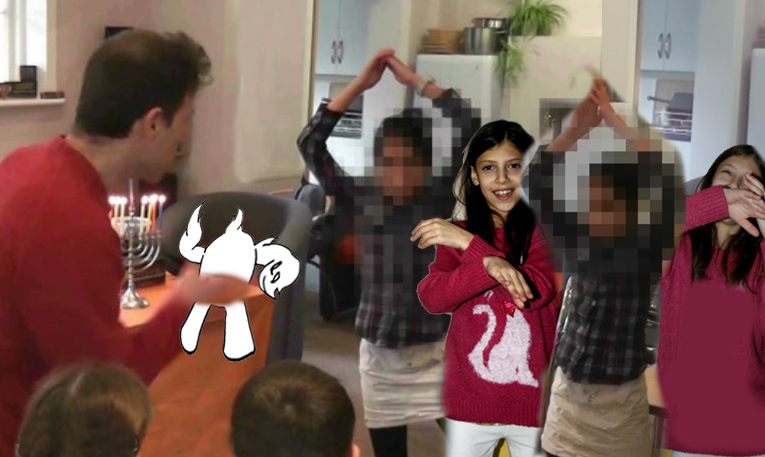
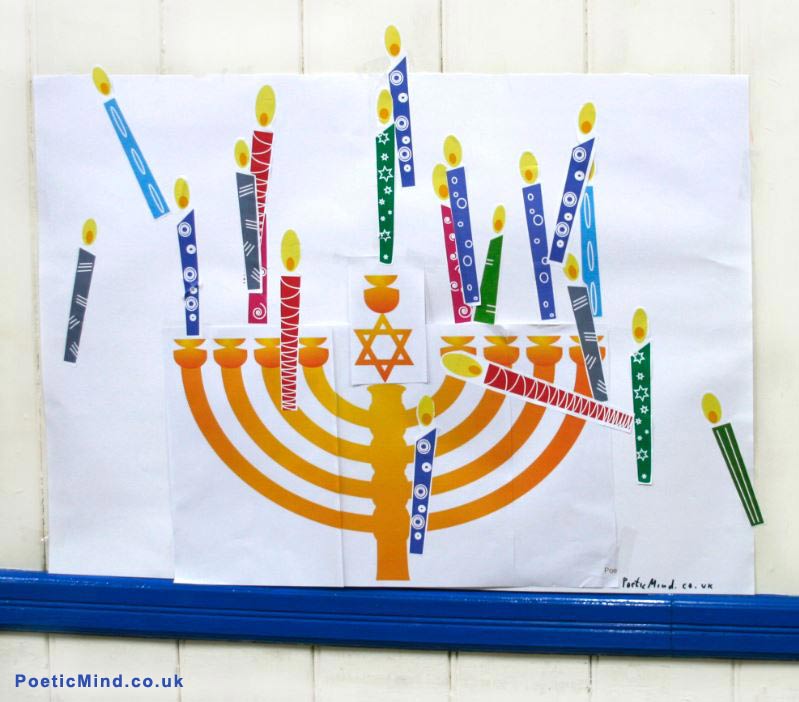
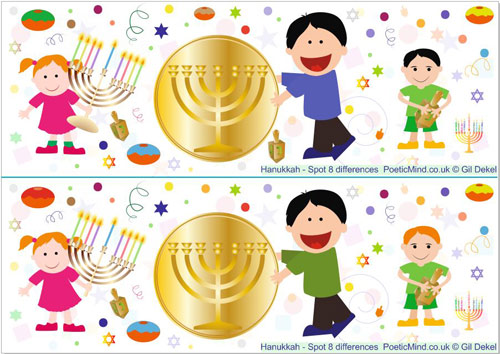
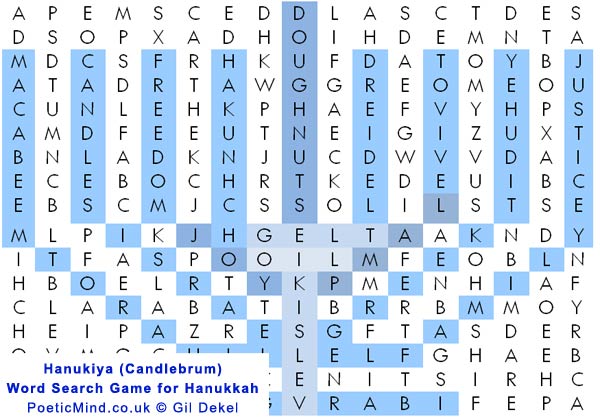
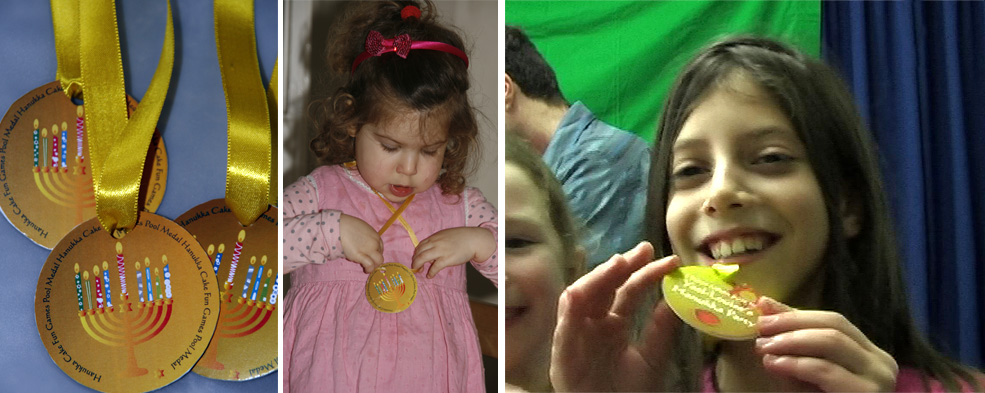
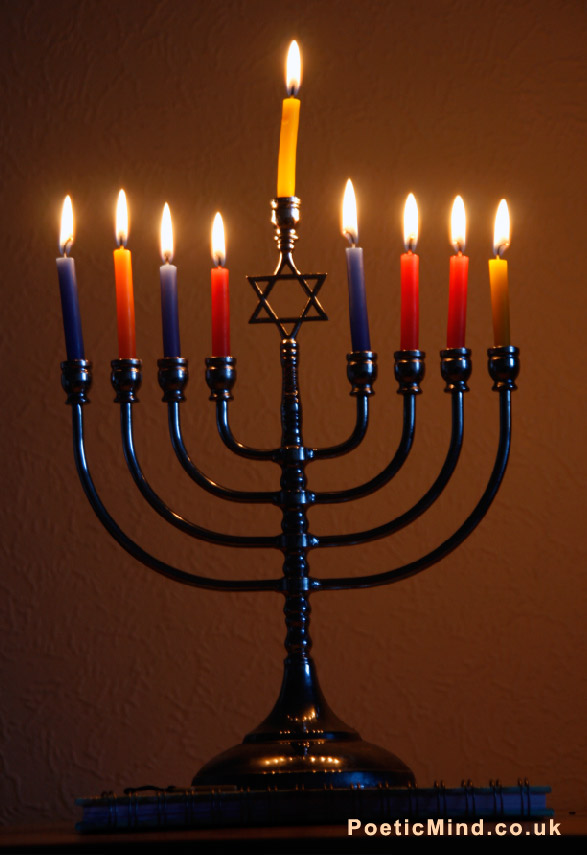
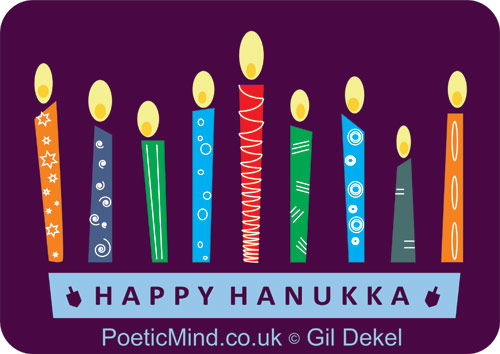
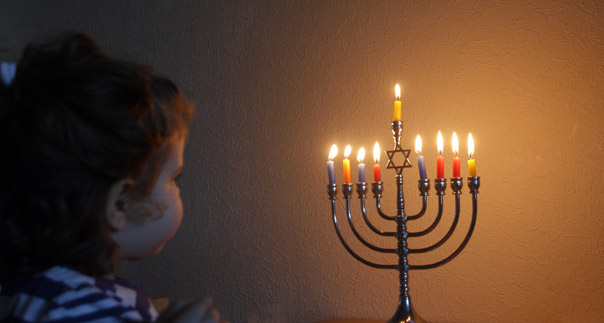

 - Reading with Natalie, book here...
- Reading with Natalie, book here...